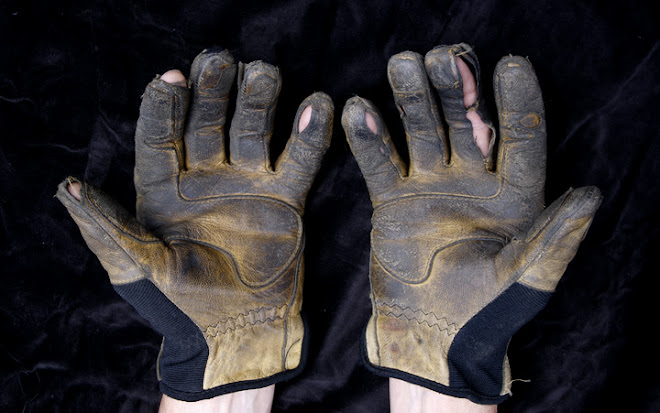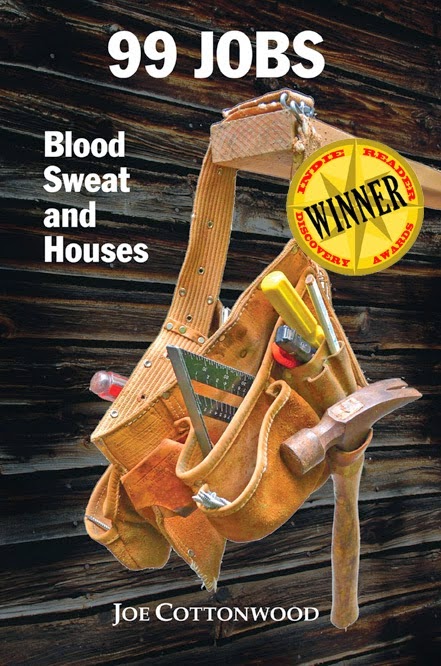The third in an occasional series on my brief career as a grip way back in the day, before the road turned me towards the life of a juicer. If you missed Part One or Part Two, here's your chance to catch up.
(Note: Due to a quirk of fate, my own permit days came as a grip -- my juicer career came later -- so I'll limit my comments to that experience)
You only need two things to become a dues-paying member of IATSE, the crafts union serving the film and television industry in Hollywood and beyond: thirty days of union work in a specific craft over the course of one year, and enough money to cover the initiation fee.* Check off those two boxes and bingo, you’re in.
Piece of cake, right?
There are two basic ways to get your thirty days. Either you work on a non-union show that signs a union contract during the course of production (the show “turns”), or you’ll have to accumulate the requisite thirty days while working as a “permit” -- an off-the-street hire -- which is possible only when the industry demand for labor has burned through the union roster of eligible workers. Working as a permit is how I got my first few union days at Sam Goldwyn Jr. Studios, then over at Paramount early in my Hollywood journey.
It happened to me too, and was frustrating as hell.
Other than Production Assistants -- the lowest of the low -- permits still occupy the bottom rung of the industry ladder, but back then, then faced the additional burden of looking up at a rigid pecking order enforced by the union seniority system. Every warm body who managed to get his/her thirty days, then pay the initiation fee to Local 80 (grip) or 728 (electric), would start out as a Number Three, last in line for jobs dispatched through the union.
The first two years for every young grip were an informal apprenticeship. After that -- assuming he paid attention, learned the craft, and worked hard -- he could become a Number Two, or journeyman grip. Number Twos did the bulk of the the physically demanding non-filming work for the studios: hanging green beds, blue screens, scenic backings, trans-lights, and huge "blacks" that was required to prepare stages for first unit crews (the “show boys”), then dismantling and wrapping all that equipment once filming was completed. A Number Two generally had to work for at least seven years before being eligible to join the ranks of Number Ones, the first-hired/last-fired front-line grips with he seniority to bump any Number Two or Three off a job. Such a promotion was anything but automatic -- the rumor back then was that a Number One had to retire or die before a Number Two could move up. Whether or not that was literally true, a newly-minted Number Three could expect to serve a decade of toil (much of that time in the studios) before becoming a Number One “show grip.” As a Number One, he/she would enjoy a steady flow of work on first and second unit crews filming in town or on distant locations, and when things slowed down, was first in line for whatever studio work was available. During slow times, most of the Number Twos and all the Number Threes were out of luck and unemployed.
Rank had its privileges.
“Call every the grip department of every studio once week,” he nodded. “Make sure they know who you are.”
The Warner Brothers grip department didn’t expect much from permits, and for good reason. Most were there for a paycheck and nothing more, and although everybody talked the big talk about getting their thirty days, few were serious about pursuing an industry career. Unlike me, most had never been on a live set, working with lights, cameras, and actors -- but the studios were a whole new world for me, and my experience on low-budget location features wasn't much help on those cavernous studio sound stages. The only edge I had were those seven days I'd spent at Sam Goldwyn Jr. and Paramount, which gave me an idea what to expect.
Still, my ignorance of the studio grip world was a mile deep and twice as wide, but my goal was simple: be primed to go when the town finally got busy, then try to get those thirty days. Everything else could wait.
And when Warner Brothers finally called, I was ready.
* Initiation fees were around $1200 at the time. Now they're in the neighborhood of $6000, the seniority system is long gone, and it's not unusual to run into a "thirty-day wonder" on set who can hardly tie his own shoes, much less a bowline, clove hitch, and square knot...
** Full scale was all of $8.65/hour back then.
Next: Stage 16

.png)









